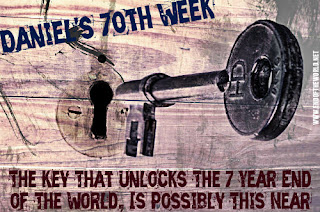A CHRISTIAN LOVE STORY
The Glorious Future of the Believer!
(Understanding the Rapture, through the Jewish Wedding!)
By Zola Levitt
www.levitt.com
Our Lord was Jewish and He did things like a Jew. So often, if we consult the Jewish law and custom, we find many of the motivations for particular actions of our Lord.
In this book, we will consider the Jewish custom of matrimony. Obviously, wedding customs varied from nation to nation and from time to time. Even in today’s world we see different additions of marriage taking place at the same time
nation and from time to time. Even in today’s world we see different additions of marriage taking place at the same time
in different countries. The Jews had their own peculiar ways, based on the Old Covenant, and the Lord, as we shall see, followed those traditions in choosing a bride.
We should appreciate that the Jews had no dating or courtship as we now think of those things. Marriage to them was a practical legal matter, established by contract and carried through by exacting procedure. These customs exist in a form today in the Jewish wedding ceremony, and in Jesus’ time they were most fascinating and complex.
When the young man of Israel in Jesus’ time saw the girl he wanted (or the girl his father said he wanted), he would approach her with a marriage contract. He would come to her house with a covenant – a true legal agreement – giving the terms by which he would propose marriage. The most important consideration in the contract was the price the bridegroom would be willing to pay to marry this particular bride.
Then the groom would pay the price. It should be said that this price was no modest token but was set so that the new bride would be a costly item – that was the idea. The young man had no delusions that he was getting something for nothing. He would pay dearly to marry the girl of his choice.
When that matter was settled the groom would depart. He would make a little speech to his bride, saying, “I go to prepare a place for you,” and he would return to his father’s house. Back at his father’s house, he would build her a bridal chamber, a little mansion, in which they would have their future honeymoon.
We should appreciate that this was a complex undertaking for the bridegroom. He would actually build a separate building on his father’s house. The bridal chamber had to be beautiful –one doesn’t honeymoon just anywhere; and it had to be stocked with provisions since the bride and groom were going to remain inside for seven days (7 years for the bride of Jesus!). This construction project would take the better part of a year, ordinarily, and the father of the groom would be the judge of when it was finished. (We can see the logic there – obviously, if it were up to the young man, he would throw up some kind of modest structure and go get the girl!). But the father of the groom who had been through this previously and was less excited, would be the final judge on when the chamber was ready and when the young man would go to claim his bride.
The bride, for her part, was obliged to do a lot of waiting. She would take the time to gather her trousseau and be ready when her bridegroom came. Custom provided that she had to have an oil lamp ready in case he came late at night in the darkness, because she had to be ready to travel at a moment’s notice. During this long period of waiting, she was referred to as “consecrated”, “set apart”, “bought with a price”. She was truly a lady-in-waiting, but there was no doubt that her groom would return. Sometimes a young man would depart for a very long time indeed, but of course he had paid a high price for his bride; even though there were other young women available, he would surely return to the one with whom he had made a covenant.
The bride would wear her veil whenever she stepped out of her house so that other young men would realize she was spoken for and would not try to approach her with another contract. (Today, the Bride of Christ wears a veil – those not understanding of our covenant try to make other contracts with us that would violate the one we have with our Bridegroom. We are to resist those other offers and wait only for the One Who paid for us.)
As the year went on, the bride would assemble her sisters and bridesmaids and whoever would go with her to the wedding when the bridegroom came, and they would each have their oil lamps ready. They would wait at her house every night on the chance that the groom would come, along with his groomsmen, and sweep them all away to a joyous and sudden wedding ceremony.
Meanwhile, the bridegroom would be building and decorating with all that he had. His father would inspect the chamber from time to time to see if it were ready. If we came along the road at this point and saw the young man working on his bridal chamber, we might well ask, “When’s the big day?” But the bridegroom would answer, “Only my father knows that”.
Finally, the chamber would be ready and the bridegroom would assemble his young friends to accompany him on the exciting trip to claim his bride. The big moment had arrived and the bridegroom was more than ready, we can be sure. He and his young men would set out in the night, making every attempt to completely surprise the bride.
And that’s the romantic part – all the Jewish brides were “stolen”. The Jews had a special understanding of a woman’s heart. What a thrill for her, to be “abducted” and carried off into the night, not by a stranger but by one who loved her so much that he had paid a high price for her.
(continue reading…)












